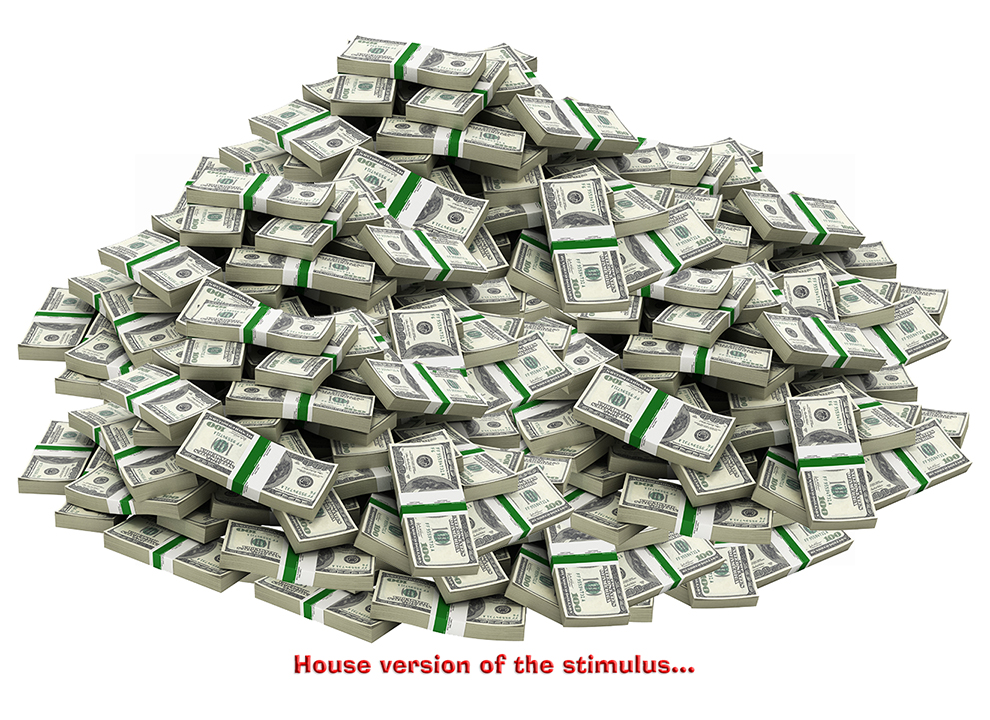We post news and comment on federal criminal justice issues, focused primarily on trial and post-conviction matters, legislative initiatives, and sentencing issues.

DEAD HEROES
 Last May, the House of Representatives passed the HEROES Act, intended to be the second coronavirus stimulus. The bill, which included in its $3 trillion giveaway a number of criminal justice changes (like letting eligible elderly offenders get home confinement after two-thirds of their good-time adjusted sentences, instead of gross sentences), was promptly denounced by Republicans appalled at its price tag and then ignored by the Senate.
Last May, the House of Representatives passed the HEROES Act, intended to be the second coronavirus stimulus. The bill, which included in its $3 trillion giveaway a number of criminal justice changes (like letting eligible elderly offenders get home confinement after two-thirds of their good-time adjusted sentences, instead of gross sentences), was promptly denounced by Republicans appalled at its price tag and then ignored by the Senate.
Eight months later, I am still getting questions about it, mostly from people who may have been sleeping in the back of the classroom during high school government class.
A bill passed by the House must then be passed by the Senate and then signed by the President in order to become law. In the case of HEROES, the Senate refused to consider the bill. Rather, the Senate passed the HEALS Act in response to HEROES, a bill that was then immediately not considered by the House.
 What finally happened last month was that the Senate and House worked out a compromise bill that was neither HEROES nor HEALS. The compromise bill included no sentencing provisions at all, a fact that seems not to detain prisoners at all. One inmate wrote me last weekend, asking me to confirm the rumor that § 205 of the stimulus bill gave elderly offenders the home confinement adjustment they sought. Alas, § 205 is entitled “Pipeline Safety Management Systems,” a provision of interest to elderly offenders only if they’re in the natural gas transmission business.
What finally happened last month was that the Senate and House worked out a compromise bill that was neither HEROES nor HEALS. The compromise bill included no sentencing provisions at all, a fact that seems not to detain prisoners at all. One inmate wrote me last weekend, asking me to confirm the rumor that § 205 of the stimulus bill gave elderly offenders the home confinement adjustment they sought. Alas, § 205 is entitled “Pipeline Safety Management Systems,” a provision of interest to elderly offenders only if they’re in the natural gas transmission business.
Another inmate asked me whether HEROES might still pass in January or February. Remember this from high school civics, boys and girls: every Congress lasts two years, and ends on January 3. The 116th Congress ended yesterday, and the 117th Congress starts its two-year run today. When a two-year Congress ends, any bill not passed by both the House and Senate is dead.
That means the sentencing changes contained in HEROES will have to be introduced all over in a new bill.
 Someone else wondered how long the BOP’s home confinement authority will last under the CARES Act. There are three answers to that. First, the BOP’s authority lasts until 30 days after the COVID-19 national emergency declared by Trump ends. The National Emergencies Act requires any emergency to end one year after it is declared, unless extended by the President. Since some national emergencies (such as with respect to Iranian assets) have continued for four decades. The current COVID emergency ends in March, but there is little doubt Biden will extend it.
Someone else wondered how long the BOP’s home confinement authority will last under the CARES Act. There are three answers to that. First, the BOP’s authority lasts until 30 days after the COVID-19 national emergency declared by Trump ends. The National Emergencies Act requires any emergency to end one year after it is declared, unless extended by the President. Since some national emergencies (such as with respect to Iranian assets) have continued for four decades. The current COVID emergency ends in March, but there is little doubt Biden will extend it.
Second, the BOP’s authority only lasts as long as the Attorney General’s determination that the emergency conditions are “materially affect[ing] the functioning of the BOP.” Attorney General Barr made that determination last April, but he or the new AG could withdraw the finding at any time.
Finally, the CARES Act lets the BOP Director put prisoners in home confinement “as the Director determines appropriate.” This provision delegates virtually unreviewable power to the BOP. If the Director decided tomorrow that he had sent all the people he needed to send, he could pull the plug.
A year ago, the BOP population stood at 175,858 inmates. As of last week, the number had fallen 13.5% to 152,184. That’s a 31% drop from six years ago.
No one knows when the BOP will no longer place prisoners in home confinement. But we’re much closer to the end than we are to the beginning.
HEROES Act, H.R. 6800 (May 15, 2020)
HEALS Act, S.4318 et al. (July 27, 2020)
Section 205, Consolidated Appropriations Act, 2021 (December 27, 2020)
Section 12003(b)(2), CARES Act, H.R. 748 (March 28, 2020)
Sentencing Law and Policy, Federal prison population closes out 2020 at new modern low of 152,184 according to BOP (December 31, 2020)
– Thomas L. Root



